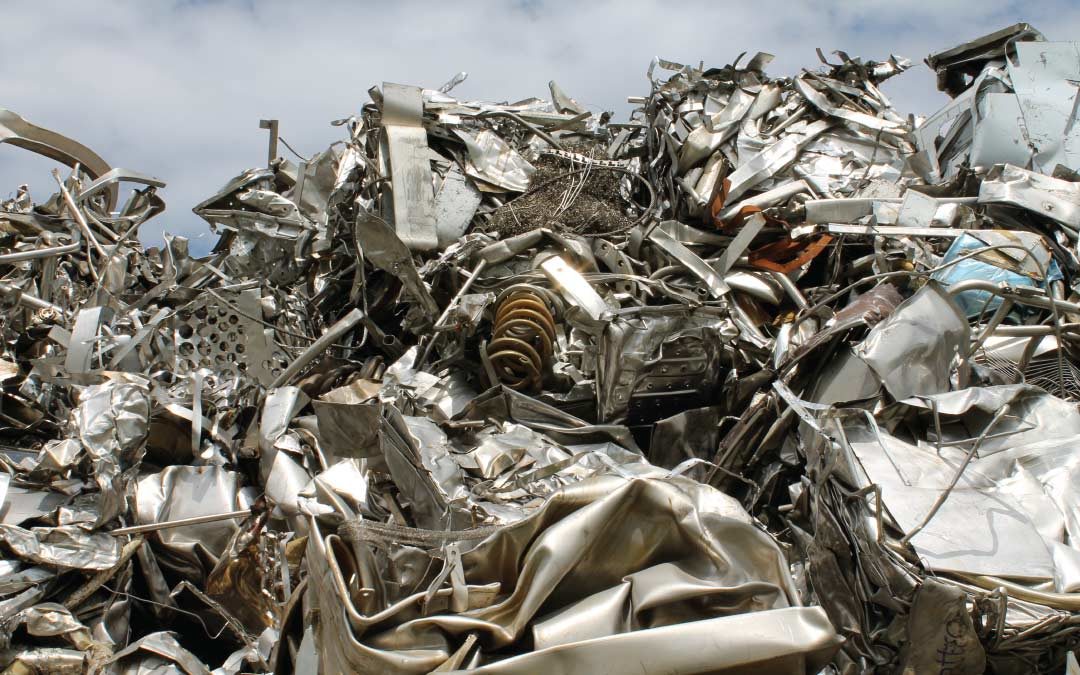Scrap metal prices aren’t always stable. But why?
It’s clear to see that the scrap metal recycling industry has a major influence on today’s society. When people recycle, it boosts the economy, benefits the environment, helps to meet the goals of cost reduction, helps with waste management and much more. In fact, The Bureau of International Recycling (BIR) estimates that 1.6 million people work directly in the global recycling industry, handling more than 600 million tonnes of recyclables each year and generating billions of dollars of economic activity worldwide. However, since metal prices tend to fluctuate, the success of the scrap metal recycling industry is partly affected by supply, demand, and other market conditions. Whether you’re an individual scrapper, a business who’s interested in recycling, or a stakeholder, it’s important to know what factors impact the price of scrap metal. Let’s take a closer look!
Location
Much of the scrap metal prices are affected by where the metal comes from. If scrap buyers are located far from mills, smelting facilities, highways or major waterways, you can expect them to factor transportation costs into the prices they offer to protect their individual profits.
International Trade
With more countries worldwide becoming active in the scrap metal recycling industry, any foreign market changes can affect local scrap prices. Large countries such as China and India deal with much of the world’s quantities of scrap metal imports. As such, global economic activity, international trade policies and other politics may also influence the price of certain metals.
Energy and Production Costs
The costs of energy, gas, oil, and other processing resources can also have a major influence on the price of scrap metal. When costs for production are high, scrap metal prices may drop in order to make up for that difference. However, since mining for new metals requires a lot of energy, this can also increase the price of scrap metal, making it a valuable business to partake in.
Price of New, Virgin Metals
Pure metal obtained directly from ore, also known as virgin metals, are extremely expensive and resource-intensive to produce. As such, when virgin metals reach an expensive price (which can also be affected by energy and production costs), scrap metal becomes a much more attractive option for manufacturing companies. This may result in a price increase for scrap metal.
Industry Demand
Different industries such as automobile, aerospace, construction, and technology can affect the value of scrap metal. For example, if there are more construction projects, the price of steel and aluminum will likely go up. Similarly, if the construction industry is slow, the demand and value for metal will go down.
Getting the most value out of your scrap
Selling scrap metal can be an excellent opportunity to give back to the environment while eliminating unwanted materials. And the best part? You can even get financial rewards for your efforts! Although the price of scrap metal is known to fluctuate, there are a few steps you can take to maximize the value of your scrap. You can start by following these simple tips:
- Know what you’re selling. Non-ferrous metals such as copper, aluminum and tin are very valuable in the scrapping industry. Depending on current market prices, you may have more room for negotiation if you want to ask for a little more!
- Sort your metals to ensure that each metal type is weighed correctly. Mixed scrap sells for less than sorted scrap.
- Clean your metals beforehand. Rusted materials weigh less than solid materials and can contaminate the other metals it comes into contact with. If rust and other contaminants are present on your metals, scrapyards will give you a reduced amount.
If you have more questions about scrap metal, how our pricing works and where to start, please don’t hesitate to contact us! At Manville Recycling, our friendly and professional team members are happy to help with your inquiries.
